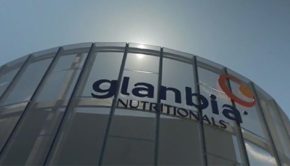Shops could face even higher tobacco licence fee

If the owners of vending machines refuse to "pony up" the exorbitant cost of the new tobacco licence fee, shops could potentially end up paying as much as €1,000, the CSNA fears
4 November 2013
Pubs, clubs, hotels and restaurants that currently offer self-service cigarette vending machines are highly unlikely to pay a €500 tobacco licence fee for a "non-core" product, according to CSNA chief executive Vincent Jennings.
This could result in the remaining tobacco retailers actually having to pay more for the government’s new tobacco licence fee than the widely reported sum of €500.
Of the country’s approximately 13,500 tobacco retailers, roughly half of this amount are actually self-service vending machines.
A question submitted to the Office of Tobacco Control by the CSNA in May, found that at the time there were 13,485 legitimate tobacco ‘retailers’ in the Republic of Ireland. Included in this figure; are 2,443 convenience stores, 1,155 forecourts/garages, 931 supermarkets, 813 newsagents, 10 duty free outlets and four ships.
In terms of self-service vending machines, 6,487 were said to be installed in pubs, 699 in hotels, 83 in restaurants, 37 in mobile shops, 33 in head shops and nine food stalls – adding to a total figure of 7,516 vending machines.
Jennings expressed concern that the removal of these machines would create a "vacuum" in the market for people who wanted to buy tobacco products outside of normal store opening hours. He fears this "vacuum" will be filled by criminals who will be "only too happy" to supply illicit products to meet the new demand.
If these outlets opt to get rid of their vending machine due to the expensive new licence fee, this could potentially raise the fee that the remaining shops must pay to €1,000 each. This increase would be necessary in order to meet the government’s projected Budget figure of €5 million, which it hopes to raise from the new licence.
There is also the possibility that the government could in the near future, prohibit the vending machines from operating. Jennings feels this would be unfair as their owners have already invested significant sums to make them adhere to current legislation. The machines have now been changed from accepting coins to only accepting tokens which must first be purchased from a member of staff.
The chief executive was also frustrated that two and a half weeks after the Budget, the organisation had "been left in the dark" as to the details of the move, with the government not responding to any of its letters. He also felt strongly that the collection of the new fee should be operated by Revenue and that the Department of Health should be "the last people in charge" of its administration.
In its weekly newsletter, the association said: "Contrary to newspaper reports, and in the continued absence of any clarity from the Minister for Health or his department officials, members of CSNA are still in the dark as to the amount, timing and purpose of the proposed tobacco retailers license, announced in Budget 2014 but appallingly bereft of details.
"What we do know for certain is that the majority of the current 13,500 registered retailers will not be paying a licence fee; that would account for an amount in excess of the consideration earned from the sales in self-service vending machines. As these make up more than half the entire total of retailers, it is conceivable that a mean-spirited and dogmatic Department would still attempt to achieve their Budget figure of €5 million by apportioning that amount amongst those of us still standing. If this were the case, the figure would be closer to €1,000 per tobacco retailer.
"The department needs to acknowledge that this licence system is nothing short of a ‘sin tax’ on retailers, designed to punish us for selling a legitimate product."
The association has urged all members to let their Fine Gael TDs know that there should be no addition taxation on a product that the State is failing to control in 25% of all consumption. The CSNA also believes retailers should not be expected to contribute to a department that will not even engage with legitimate stakeholders.
The group added: "As retailers, we have responsibilities to society in the way we sell tobacco, we are also fully aware that the category is in natural decline but we cannot be expected to reduce our viability by additional costs without firm assurances that e-cigarettes and other tobacco harm reducing products such as NRT are made available in our outlets to shore up the decline."



 Print
Print





Fans 0
Followers